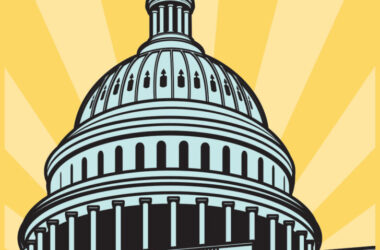By Phil Kabler
For the West Virginia Press Association
CHARLESTON, W.Va. — Wrapping up six months of study of the state’s tax laws, the legislative Select Committee on Tax Reform spent four hours in hearings to get the public’s thoughts on how to improve the state’s
tax system.

Not surprisingly, several themes emerged during the lengthy public hearing:
— Business representatives advocated tax cuts, with the personal
property tax on business inventory most frequently cited as the most
onerous tax on businesses.
“It’s absolutely a factor in keeping businesses from locating here,” said Parween Mascari, with the state Chamber of Commerce.
However, Senate Finance Chairman Mike Hall, R-Putnam, the committee co-chairman, noted that changing property tax laws would require that voters approve an amendment to the state Constitution. “This particular tax fix would be a statewide decision,” he said.
West Virginia Coal Association President Bill Raney, meanwhile, advocated for reducing the severance tax on coal from 5 percent to 2-
to 3-percent, which he said would help West Virginia compete with lower prices for coal mined in neighboring states.
“If we can sell it, we can clearly produce it, and that will help the state,” he said.
— Advocacy groups for families and children pushed for tax relief for low-income households, with the leading recommendation being enacting state earned income tax credits. Those credits would provide about $47 million a year of state income tax relief for about 38,000 low-income workers, with an average refund of about $330.
“I’m asking you today to put West Virginia’s vulnerable families first,” said Jennifer Thacker with the state Alliance for Sustainable
Families, one of the advocates of the EITC.
— Health care groups called for an increase in the state’s tobacco tax, as a way to both raise much-needed revenue for the state, and
also give smokers additional incentive to quit. Currently, the state’s 55-cent a pack cigarette tax is 46th lowest in the country, and well below the national average of $1.60, and is a reason why West Virginia has the highest adult smoking rate in the U.S., at 27 percent, according to Cinny Kittle, with the Coalition for a Tobacco-Free West Virginia.
“The increase needs to be sizable, all at one time, to bring a significant decrease in tobacco use,” she said.
Both Hall and fellow co-chairman, House Finance Chairman Eric Nelson, R-Kanawha, said major tax reforms are unlikely during the 2016 legislative session, given the downturn in the state’s economy and a looming state budget deficit, projected to be at least $250 million. A day earlier, state public education officials warned committee members that elimination of personal property taxes would be
devastating to public schools, costing more than $360 million of school funding.
Nelson, however, objected to the presentation, saying the education officials had drawn up “doomsday scenarios that are not entirely based on reality,” since there has been no proposal by the committee to eliminate all personal property taxes.
Also during October legislative interim meetings:
— A continuing dispute between legislative leadership and state Auditor Glen Gainer over plans to switch salaried state employees to a
biweekly pay periods based on a 364-day year escalated, with legislative auditors suggesting the switch may be illegal. State law prohibits paying state employees before services have been rendered, and Legislative Services attorney Doren Burrell told
legislators the switch from twice monthly to biweekly pay creates a situation where those employees are “essentially paid twice” for the
365th day each year.
“It’s not legal under state law,” Burrell told the legislative Post-Audits committee.
Legislative leaders have objected to the change, since it would provide some 24,000 employees with an estimated $5 million a year of
“bonus” pay.
“We intend to pay every dime we owe every state employee…but we don’t intend to find $4 million or $5 million (a year) in the state budget to handle the decimal point,” Senate President Bill Cole, R-Mercer, said.
Gainer has said it ultimately would be cheaper to pay that amount than to have to reprogram state payroll computers each year, and have to incorporate that fraction of a decimal point for all calculations of employee payroll benefits.
— An audit of ongoing misuse of state Purchasing Card credit cards by staff at Shepherd University cited several questionable purchases in excess of $1,000, but the purchase that raised eyebrows was $56 spent at a local drug store to buy condoms, K-Y Jelly and “sexual enhancement products.”
Alan Perdue, general counsel for the university, told legislators the university is working to implement new P-Card and procurement
practices set up by the state Auditor’s office. As for the purchase in question, Perdue said the university had determined that was made by a residence hall director for distribution to dormitory residents.
However, he said the purchase of the so-called sexual enhancement products was inappropriate, noting, “Procuring, let alone distributing, those last items is unacceptable.”




